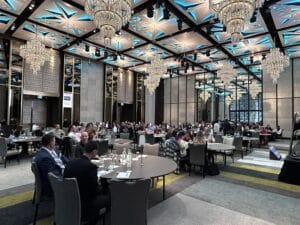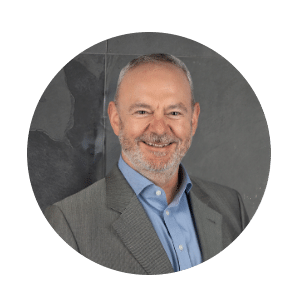TALiNT Partners 2025 Melbourne Summit on May 29th, brought together over 100 senior HR, talent, P&C, and workforce leaders for a dynamic, peer-driven discussion on the most pressing workforce priorities of 2025.
The event centered on the future of work, tackling key themes such as AI and automation, workforce planning, skills-based hiring, leadership development, and the evolving role of DE&I in fostering meaningful, lasting impact. Expert insights came from industry leaders, including representatives from Eightfold, Civitas Talent, and Allegis Global Solutions, who brought thought-provoking perspectives on the challenges and opportunities shaping the next generation of workforce strategies.
One of the defining messages of the day was the critical role of storytelling in HR and talent strategy. Mark Condon’s opening keynote emphasised that HR professionals must be skilled communicators, effectively conveying what organisations can offer their current and future workforce. Coupled with this was the urgent call to get data in order, as without a structured data strategy, an AI strategy simply cannot succeed.
Throughout the sessions, one idea stood out: AI itself is the best tool for solving AI-related challenges. The discussions reinforced that organisations must embrace AI not just as an enhancement but as a fundamental component of future workforce planning. Yet, as businesses navigate continuous transformation, another key insight emerged: clear, effective feedback is now more important than ever. In an era of relentless change, the ability to openly discuss what works, and what doesn’t, is an essential skill that drives both individual and organisational success.


AI experimentation was another central theme, with leaders encouraged to lean into innovation while maintaining strong ethical frameworks. However, this requires a fundamental rethink of workforce skills, the attributes needed for success in the new economy may not align with past expectations. Creativity, curiosity, and original thinking are more vital than ever, shifting the focus away from purely technical competencies and toward adaptable, strategic mindsets.
One lively debate pondered whether it is better to be the early bird that gets the worm, or the second mouse that gets the cheese when it comes to AI innovation. Should companies make their own mistakes to stay ahead, or wait and learn from others? The answer of course is not universal, it depends entirely on an organisation’s culture and its willingness to take risks.
The day concluded with an eye-opening assessment of talent functions, evaluating which areas can be fully or partially automated. The findings were striking, between 60% and 80% of a typical talent function can be automated. This naturally raises an important question, what does this mean for talent leaders if much of their function is fully automated? AI itself provided some useful answers, offering guidance on how professionals can evolve their career paths within a talent and workforce environment.
Overall, the summit was energetic, insightful, and occasionally controversial, but never dull. It highlighted the transformative role of AI, reinforced the importance of new skillsets, and posed critical questions about how workforce leaders can effectively navigate the future of talent in an era of unprecedented change.





